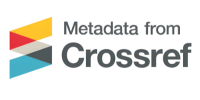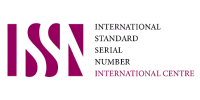Impact of Homoeopathic Medicines on Insulin Resistance (HOMA-IR) and Menstrual Cyclicity in PCOS
DOI:
https://doi.org/10.25215/31075037.001Keywords:
Homoeopathic Medicines, Insulin Resistance (HOMA-IR), Menstrual Cyclicit, PCOS (Polycystic Ovary Syndrome), Alternative MedicineAbstract
Premenopausal women suffer from the common endocrine condition Polycystic Ovary Syndrome (PCOS) which affects between 6-10% of all female individuals worldwide. The essential elements defining PCOS involve irregular menstrual cycles with hyperandrogenism and polycystic ovaries together with insulin resistance (IR). Insulin resistance functions as a key metabolic problem which determines PCOS pathogenesis while generating multiple health problems that include obesity along with type 2 diabetes and infertility. The current insulinsensitizing medications used with oral contraceptives for PCOS treatment fail to resolve the core underlying causes of the condition which motivates women to pursue alternative therapy options. Homoeopathy becomes prominent because it shows promise for treating PCOS symptoms including its influence on insulin resistance along with menstrual cycle regulation. The research investigates how homoeopathic medicines affect insulin resistance (HOMA-IR) scores in addition to menstrual cycle regularity in women diagnosed with PCOS. A research trial used randomized controlled methods to include 60 PCOS-diagnosed women who received either personalized homoeopathic prescriptions or placebo medication in separate groups of 30 participants. The research tracked HOMA-IR scores throughout 12 weeks together with menstrual cycle monitoring at three separate time points starting from baseline through week six and week twelve. Insulin resistance scores decreased significantly in the treatment group which received homeopathic medicines compared to the placebo group where the decrease was not significant (p < 0.05). The treatment group achieved better menstrual cyclicity results because they had regular periods and shorter cycles yet the placebo group did not display measurable improvements. The analysis demonstrates that personalized homoeopathic care aimed toward constitutional types can improve insulin regulation along with menstrual balance in women with PCOS. Several constraints limiting the study emerged because it worked with a tiny participant group during a brief intervention period while adopting open-format prescribing techniques. The limitations in this study do not negate the promising potential of homoeopathy to assist in the treatment of insulin resistance along with menstrual irregularity present in PCOS patients. Additional investigation with more extensive participant numbers and longer observation durations along with standardized hormone examinations must confirm the effectiveness of homoeopathic medicine treatment for PCOS. This research shows initial findings that support the therapeutic potential of homoeopathic medicine when treating insulin resistance along with menstrual disorder symptoms in women with PCOS. More clinical research should proceed to establish homoeopathy as an alternative treatment approach for managing PCOS which remains a widespread challenging condition for many women.












